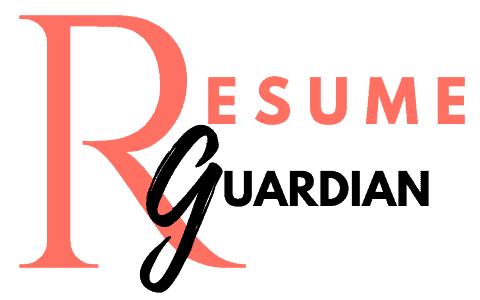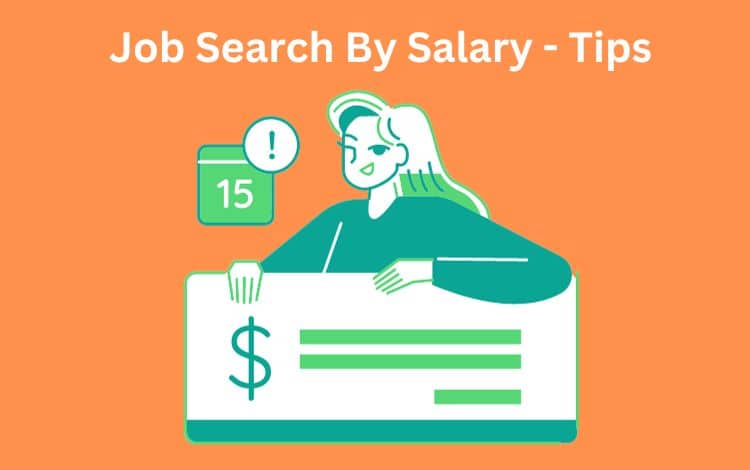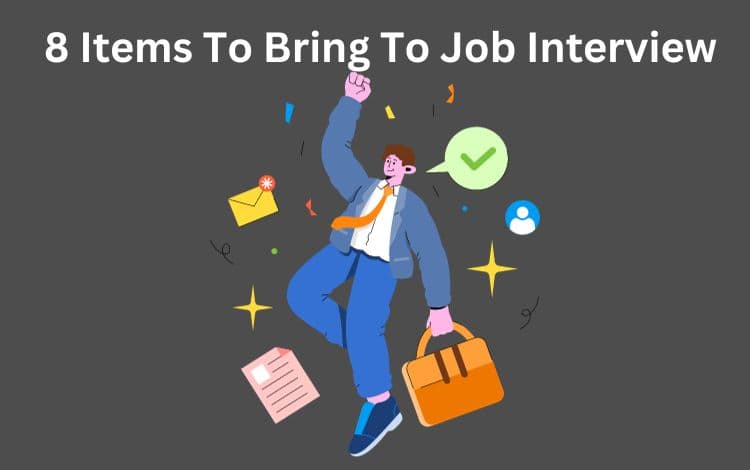
The number of job openings vs. candidates applying for jobs is decreasing. This means fewer job positions face stiff competition from competing applicants, and there’s no room for mistakes during the job application process, from “sending resumes” to “attending job interviews.”
It’s natural for candidates to be anxious about their upcoming interviews because every applicant is eager to grab that job offer and worries about their performance.
So what are the most common reasons for nervousness in job interviews?
Job interview anxiety is expected because a candidate gets judged by unknown people in a few minutes via a discussion. The most common reasons for candidates feeling nervous are “Fear of rejection,” “Self-doubt,” “Fear of being judged,” “Fear of making mistakes that could cost the job,” and “Confusing selection process.”
Understanding what causes anxiety during job interviews can help you prepare and train yourself to reduce nervousness.
This article dives into the details of the reasons and methods to reduce anxiety.
Why do Candidates Get Nervous During an Interview?

A little nervousness in a job interview is good; you care about the job and the interview. Your brain puts 100% focus on the activity that makes you nervous, and you will be able to perform much better and deliver outstanding results.
Being nervous is normal, but keeping nervousness to a minimum functional level is the tricky part. If you are too nervous, your mind might race fast with lot of thoughts and prevent you from focusing on the interview. You could even stumble over the interview questions you had prepared for and for which you knew the answers.
Let’s go through in detail the reasons why candidates feel nervous during job interviews:
- Fear of Rejection – The number one reason for interview anxiety is the classic “Fear of Rejection.” When someone meets a new person, it’s the human tendency to show their best face and impress the person. When you fear rejection, you try to avoid the anxiety-causing situation.
- Self-doubt – It’s natural for a candidate to doubt their interview answers. Still, when the candidate starts to self-doubt about their personality and speaking skills, it results in a lack of confidence, and this causes enormous amounts of anxiety during the interview.
- Fear of being able to Impress the Interviewer – All interviews have a finite time, usually ranging from a few minutes to an hour. And candidates have the daunting task of impressing the interviewers with their work skills, expertise, and communication skills to get that job offer. This naturally creates a lot of anxiety for candidates during job interviews.
- Mistakes that Cost Job Offer – No one is perfect; every single one of us makes mistakes. But what if that mistake costs you the job offer? During the limited interview time, candidates must prove themselves and give all the correct answers, and avoiding errors is bound to create anxiety in job interviews.
- Judged in a Few Minutes – A candidate might be skilled at their current job and might be the sought-after person in their team. But during job interviews, the candidate gets judged by unknown people in a few minutes. When your entire life and career achievements get judged in a few mins, it naturally causes nervousness.
- Selection Process is Confusing – It’s not always about being confident and giving the correct answers. Job interviews are also a way to assess if the interviewer is comfortable having the candidate on their team and if they could fit in the company’s work culture. These selection criteria are very vague and subjective, resulting in anxiety.
- No Proper Company Research – Every candidate who applies for jobs should personalize their resume and cover letter for the specific job opening and do proper research on the company before their interview. You must research the company before the interview to assess how your skills can help the company achieve its targets. Doing sufficient research enables you to answer the interview questions “Why should we hire you for this job?” or “Why do you think you are the best fit for this position?”
When the whole fate of your career and years of your life ahead gets decided by a few minutes of job interview, it builds pressure and creates anxiety during job interviews.
What Percentage of People are Nervous in Job Interviews?

A survey by JDP, conducted on 2000 candidates, indicates that 93% of candidates have experienced anxiety during job interviews. Another study conducted by GlobeNewswire suggests that 92% of American adults fear something about job interviews.
Both surveys show that 9 out of 10 people show fear and nervousness in job interviews. Employers and interviewers who want to recruit top talents and employees know that nervousness during interviews is very common and not a red flag.
Great hiring managers try to calm down the candidates by offering them a drink, talking in a relaxed tone, smiling, and encouraging the interviewees so they can bring out the best in the candidates.
A whopping 9 out of 10 people show fear and nervousness in job interviews.
Is it Ok to Admit You are Nervous at an Interview?

It’s perfectly ok to be nervous during a job interview, but should you admit to the interviewer that you are scared?
The majority of candidates are nervous during job interviews. When you are anxious and fake confidence, your mind and body think and behave confidently.
During the interview, when you feel nervous, use positive words and visualizations – say that you are excited to be part of the company and team and how you could help the company achieve its targets.
If you feel that your nervousness is getting out of control and is impacting your performance, it’s perfectly ok to tell the interviewer how you feel.
Experienced interviewers know that candidates become nervous during interviews, and good hiring managers try to establish rapport and calm the interviewees to get the most out of them.
You will also come across to the hiring manager as a trustworthy candidate with the following qualities:
- Honesty – Hiring managers will see you as an honest candidate who can speak their mind without reservations
- Good Team Player – Communication is key to any team’s success, and it depends on the individuals on the team. You will be considered a good team player who can effectively articulate your mind and vulnerabilities.
- Leads to Friendly Conversation – Admitting you are nervous can be a good ice-breaker and lead to friendly conversations with the interviewer.
During the interview, when you feel nervous, use positive words and visualizations – say that you are excited to be part of the company and team and how you could help the company achieve its targets.
How do I Calm my Anxiety During a Job Interview?

When our brain perceives a situation as high-stakes, it goes into a heightened mode, thinking about the worst-case scenarios, and brings performance anxiety.
Anxiety at low levels enhances interview performance, but at high levels, our body prepares for the classic flight or fight response. This has the potential to ruin the candidate’s interview performance and should be controlled.
Since we have gone through the various reasons for job interview nervousness, let’s see what action we can take to reduce or control the anxiety.
So what can you do to reduce anxiety a few days before the job interview?
- Don’t be Desperate to Clear the Interview – You cannot control the outcome of a job interview. What you can control, though, is the input – focus on job interview preparation, visualize and answer the standard interview questions using a framework, record and evaluate your performance, improve what you can, and iterate the process.
- Don’t make a Job Interview your Life’s Goal – Consider a job interview as a conversation to see whether you fit into the company and whether the company thinks it can make money out of you if they hire you. That’s that; keep going and move on. Focus more on your learnings and improve along the way.
- Celebrate your Achievements – Imagine you got an interview call. From that moment until the interview is over, our mind usually tries to project the worst-case scenarios, creating immense anxiety and nervousness. Instead, respect your achievements. You are at the interview seat because the employer needs good employees and sees you as a potential fit.
- Have a Plan After the Interview to Reward or DeStress Yourself – You got the interview call, prepared well, performed to the best of you, and now you should reward yourself for your achievements. Watch a movie, go for a drive, or do something you love to appreciate your efforts and destress. Don’t wait until the results are out; celebrate now.
- Trust the Interview Process – Be honest and believe the company was not a good fit for you if you are not selected. Consider every interview a learning process that allows you to improve your performance.
And what can you do to reduce anxiety a few hours before the job interview?
- Listen to music
- Visualization techniques
- Positive Self Talk
- Meditation
- Exercise
Anxiety at low levels enhances interview performance, but at high levels, our body prepares for the classic flight or fight response.
Final Thoughts
I just give myself permission to suck…I find this hugely liberating.
John Green
Nervousness in job interviews is quite normal; 9 out of 10 candidates feel nervous. Interview preparation can help you handle this situation effectively and be confident during your interviews.
Never be desperate to clear the interview at all costs. Consider every job interview as a learning ground to improve your performance for the next one. This reduces your stress and makes you more confident in interviews, thus enhancing your chances of grabbing that job offer.






